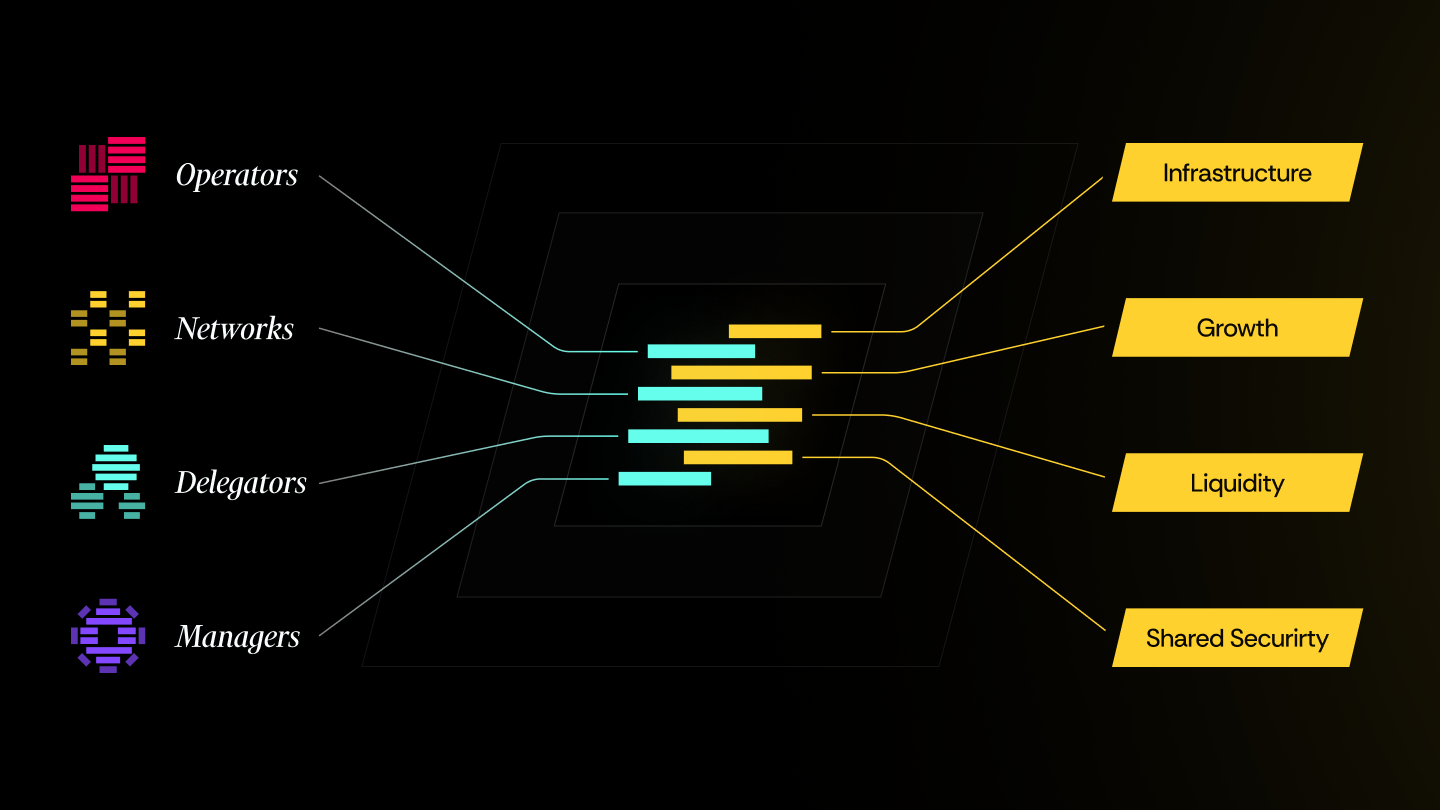Nektar - Liquidity & Infrastructure Marketplace
The maturity of distributed networks like Ethereum and its ecosystem has enabled the effective implementation of a Modular Economy. To properly scale technological capabilities, multiple network systems have been developed, giving rise to the Decentralized Concentration Economy (DCE).
What is Nektar?
Nektar is a Liquidity & Infrastructure Marketplace that seamlessly aggregates liquidity by connecting Delegators to Networks through a Decentralized Asset Manager (DAM). DAMs also enable Operators to manage infrastructure operation for the benefit of Networks.
This implementation offers maximum flexibility for interacting with Nektar, with minimal requirements and concessions from participants. It supports a wide range of users, from professional node operators to gaming aficionados, from shared security protocols to liquidity pools. Nearly any participant in the modular decentralized economy can use Nektar to distribute rewards or source compute power without relinquishing token control or altering incentive mechanics.
Benefits
Nektar aims to match infrastructure and liquidity needs of:
- Operators maximize capital efficiency of existing infrastructure by accessing top revenue-generating opportunities
- Networks incentivize liquidity, attract new operators, boost loyalty of existing ones
- Delegators increase potential rewards from their assets by depositing a wide array of tokens
- Managers are responsible for creating and running DAMs
